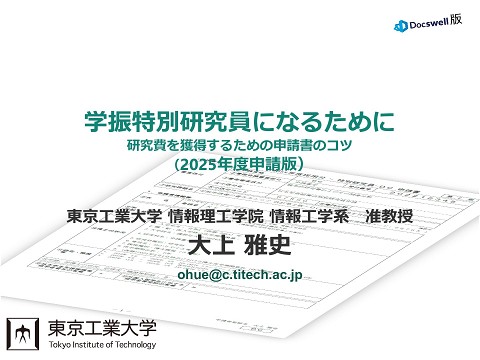Crypto Wallet Development Empowering the Future of Secure Digital Transactions
>100 Views
November 01, 25
スライド概要
関連スライド
各ページのテキスト
Crypto Wallet Development Empowering the Future of Secure Digital Transactions With the rapid evolution of today's digital financial environment,cryptocurrency wallet developmenthas a major role in aiding users to save manage and transfer their digital assets in a safe and secure manner. Since cryptocurrencies are becoming more mainstream as businesses, start-ups as well as investors are looking for safe and reliable solution for wallets to guarantee smooth and effective cryptocurrency transactions. This article examines the basic principles that are involved inCrypto Wallet DevelopmentIts types, characteristics that are beneficial, the benefits and why it's crucial for firms looking to join or grow within the cryptocurrency marketplace. An Introduction to Cryptocurrency Wallet Development Cryptocurrency walletDevelopmentis the procedure in the design and development of safe digital wallets that permit customers to save, transfer or receive cryptocurrency including Bitcoin, Ethereum, and other tokens. The wallets are either desktop, mobile, or web or even hardware-based, based on the needs of the user and their business targets. A cryptocurrency wallet cannot contain cryptocurrencies, but rather it manages securely both public and private keyswhich are the keys required to gain access to assets that are blockchain-based. Security as well as usability and scaling essential to a successfulCrypto wallet development.
Why Cryptocurrency Wallets Play a Crucial Role in Modern Finance With the advancement of blockchain technology and becomes more user-friendly, demand for secure and user-friendly wallets is increasing. The cryptocurrency wallet is the entry point to decentralized financial (DeFi) and NFT transactions Staking, international payments. Without them, the management of cryptocurrency assets could be a challenge and risky. Businesses are able to leveragethe development ofcryptocurrency walletsto design customized solutions that give users full control of their funds with the assurance of top security standard. Enterprises and startups alike Offering a bespoke wallet improves trust with users and helps grow brand recognition and helps to increase adoption within the highly competitive cryptocurrency market. Types of Cryptocurrency Wallets In the process of creating a wallet, business owners must select the one that is in line with their needs and target market. The most popular kinds of wallets for cryptocurrency include: 1.Hot Wallets Hot wallets can be connected to the Internet and can be beneficial for those who regularly trade or transfer with cryptocurrencies. They're easy to access, speedy and efficient, however they need strong security measures to guard against cyberattacks. Examples include Web wallets as well as mobile wallets. 2.Cold Wallets Cold wallets are offline and operate and offer greater security from cyber-attacks. They are often used for longer-term storage of assets and typically rely on hardware. Examples: Hardware wallets, and paper wallets. 3.Desktop Wallets If installed on a personal computer These wallets allow users with complete control over the private keys of their wallets and information. They are able to provide security and accessibility. 4.Mobile Wallets They are mobile applications that were designed to speed up transaction, QR-based payment in addition to integration to exchanges. Mobile wallets are great for both on-the-go and retail crypto customers. 5.Web Wallets Web wallets work with web browsers and allow users to access their accounts via any device. They rely on security features that are provided by the server. 6.Custodial and Non-Custodial Wallets
● Custodial accountsare managed by a third-party (like one exchange) offering convenience, but with less control. ● non-custodial walletsoffer users complete control over their private keys providing greater security and autonomy. The selection of the correct type of wallet is the most important step to take when it comes toCrypto Wallet developmentin that it will determine the application'scapabilities, security specifications, and public. Top Features That Define an Advanced Crypto Wallet Moderndesign of crypto walletsis focused on developing wallets that blend usability as well as security and innovative. These are the key elements to be included: 1. Support for MulticurrencyAllows users to handle multiplecurrencies within a single wallet. 2. Two-Factor 2FA Authentication (2FA)- Adds another layer of protection for account holders. 3. QR Code Scanningmakes it easier to pay for transactions. 4. Private Key ManagementSecure keys are stored andencrypted. 5. Push Notificationsalerts users of the market's movementsand transactions. 6. Integrates in-app Exchangepermits seamless exchange of electronic assets. 7. Multi-Signature supportadds shared control to providegreater security. 8. Biometric IdentificationIt provides safe and rapidauthentication options. 9. Option for Backup and RetrievalThis option protects users from accidentally losing their data. 10.Cross-Platform Compatibility- Ensures smooth operationacross devices. Through integrating these features developers can create an account that is able to meet both technical as well as user experience expectations, positioning it as a trusted product for the financial sector. Cryptocurrency Wallet Development Process Explained Making a safe and efficient cryptocurrency wallet requires a number of steps: 1. Research and Planning It starts by determining the objective, intended group, and the type of wallet (custodial or non-custodial hot cold). 2. Designing the Architecture The development team is responsible for defining the architecture of wallets that includes the selection of blockchain as well as the setup of databases, along with an API integration plan. 3. UI/UX Design The creation of an easy-to-use, intuitive interface improves engagement of users and keeps them engaged.
4. Development and Integration Blockchain nodes are integrated by developers to provide APIs from third parties (like Exchange APIs) and smart contracts. 5. Security Implementation Priorities include security, multi-layer authentication as well as secure storage of private keys. 6. Testing and Deployment The wallet is tested for weaknesses, scalability and performance prior to being made available in the real world. 7. Maintenance and Updates Updates on a regular basis ensure that the software is compatible with all new blockchain networks, tokens and security standards that are constantly evolving. Every stage ofCrypto Development of Walletsrequiresexpertise and knowledge of Blockchain protocols, cryptography and security to make sure that the product's security. secure and expandable. Exploring the Benefits of Building a Cryptocurrency Wallet Users and businesses get a custom-designed wallet by a number of methods: ● Advanced Security:Advanced encryption and authenticationshield your assets from hacking or theft. ● Full OwnershipThe non-custodial wallets give users the full control of the digital asset they own. ● More efficient transactions:Optimized wallets enableseamless transfers and payments across the globe. ● Brand Recognization:Crypto wallets offered by companiesare able to establish themselves as leaders in the field of blockchain. ● Opportunities for Revenue:Businesses can generaterevenue through transaction charges and premium features as well as an integrated exchange service. ● Cross-Chain Function:Multiple blockchains are supported.This improves the usability and acceptance. The essence ofdeveloping a cryptocurrency walletis not simply an technical procedure -it's also a step towards financial empowerment as well as business technological innovation. Emerging Technologies Shaping the Future of Crypto Wallet Development Future prospects forCrypto Development Walletis looking promising thanks to advancements including decentralized identification (DID) as well as AI powered fraud detection, and Web3
integration. Digital assets will expand beyond currency to include NFTs, tokenized assets and DeFi-related instruments, wallets will transform into complete digital assets management tools. The features such asinteroperability across multiple chains,social recovery alternativesas well assecurity using biometricswill likely to revolutionizethe ways that people interact with the blockchain ecosystem. Companies that invest early in the technology of wallets will get a advantage in competition as the global adoption grows. Driving Digital Economy Growth with Secure and Reliable Wallets While blockchain is continuing to transform the financial world,cryptocurrency wallet developmentis at the forefront of the transformation.From people who want an encrypted storage space for their valuables to companies that are launching DeFi platforms requirement for secure, custom and easy-to-use crypto wallets is increasing rapidly. When you partner with a reputableCrypto Wallet Developmentfirm, companies can provide solid digital solutions that build confidence, encourage innovation and help shape the future of decentralized financial services.






